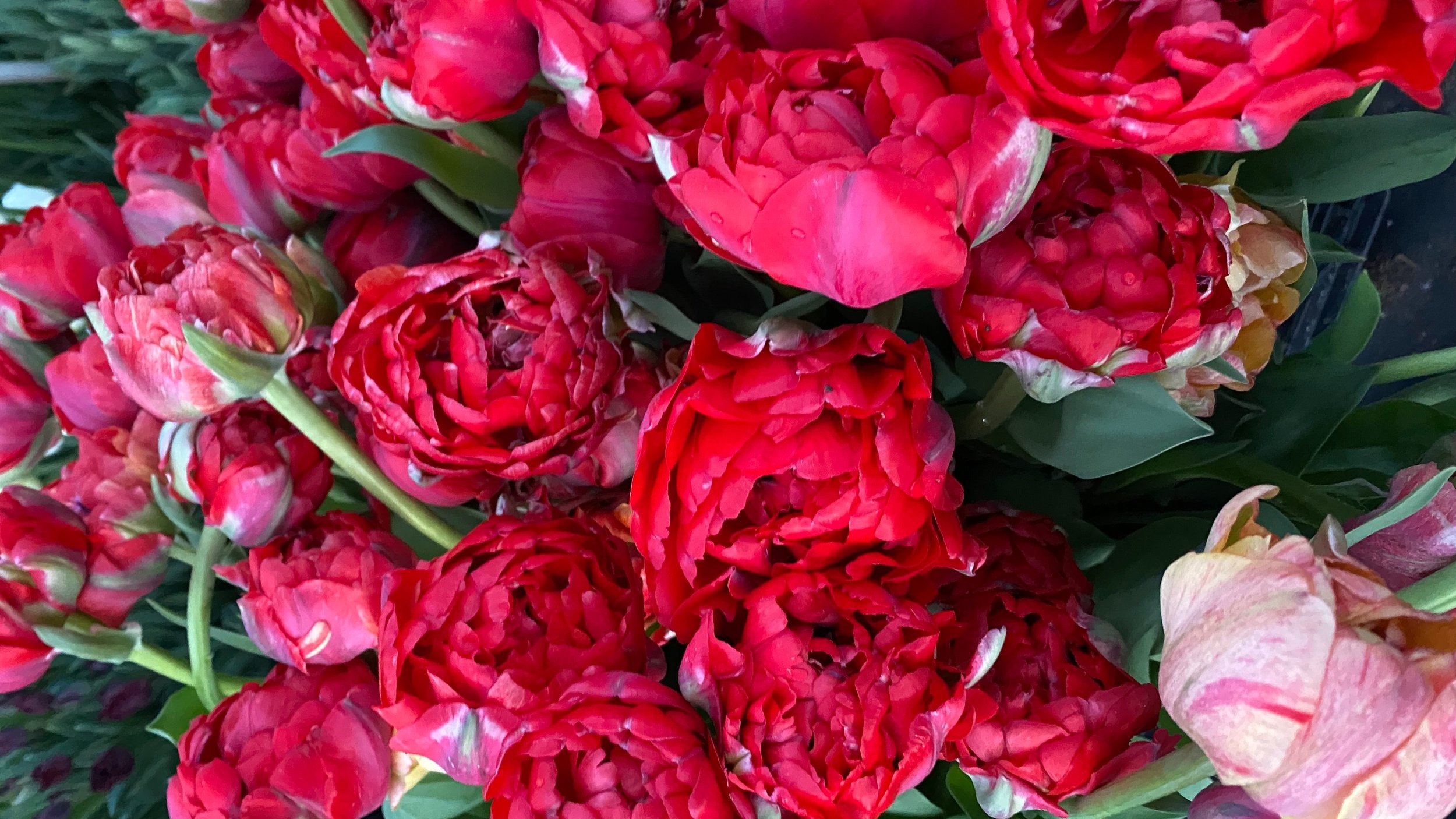
Get to know your flower farmers
Hello! We’re Dana and Charles
Whether we’re barefoot in the garden, arranging flowers for you, or sharing a quiet walk together in the blooms, this life we’re growing is about becoming rooted in the true, good, and the beautiful.
Our journey has taken us across the country—from our childhood roots in Michigan to military life in North Carolina and Missouri, the vast wildness of Alaska, to West Point and our beautiful valley in New York's Finger Lakes. With each new place, we’ve carried the same desire: to live more intentionally, at the source of things.
In 2020, we turned our lifelong obsession with flowers into a business during the immense change and challenge of a global pandemic. We were searching for a way to slow down, to reconnect with the rhythms of creation, and to remind ourselves and our children of what truly matters. The garden became a space of healing and hope. It still is. What we’ve discovered is that beauty isn’t a luxury—it’s essential. Beauty isn’t something we chase, but something we practice. It forms us, shapes our habits, and anchors our hearts. Beauty gives us language for joy, space for grief, and a place to come home to ourselves—in the garden, in our home, and in the hearts of those we welcome here. Out of this vision, Dana’s mindset coaching naturally blossomed. Rooted in reason and beauty—radiance, harmony, and integrity—her work helps others cultivate their interior garden. Whether it’s identifying a limiting belief, finding clarity in a tough season, or simply learning to receive life as a gift, coaching is an invitation to deeper growth. So whether you’re here for a bouquet, a retreat, a workshop, or a simple moment of stillness, welcome. We hope you’ll find something beautiful here—and carry it with you when you go. Let’s grow something beautiful for you and the people you love!

“Beauty forms us, shapes our habits, and anchors our hearts.”
Meet our “staff.”
The secret ingredients of our beautiful blooms.
Our small flock of Finn sheep help keep the grass short, and Lovey and Una—our flower doggos, keep an eye on them to make sure they don’t miss a spot. In the fall, some of our blooms get used to make dyes for the wool they give us each spring.
Our birds roam around the farm looking for pests that like the taste of our flowers. In the fall, we turn them loose on the flower beds to eat the leftovers and regenerate our soil.
Our honey bees pollinate the flowers we grow, helping to make the seed we plant year after year. They also give us all the honey our kids need to stay so sweet.
Speaking of our kids, these guys aren't staff. They're the heart and soul of our farm. They love to be in on everything we do around our farm. We teach them a little, but mostly they teach us.






